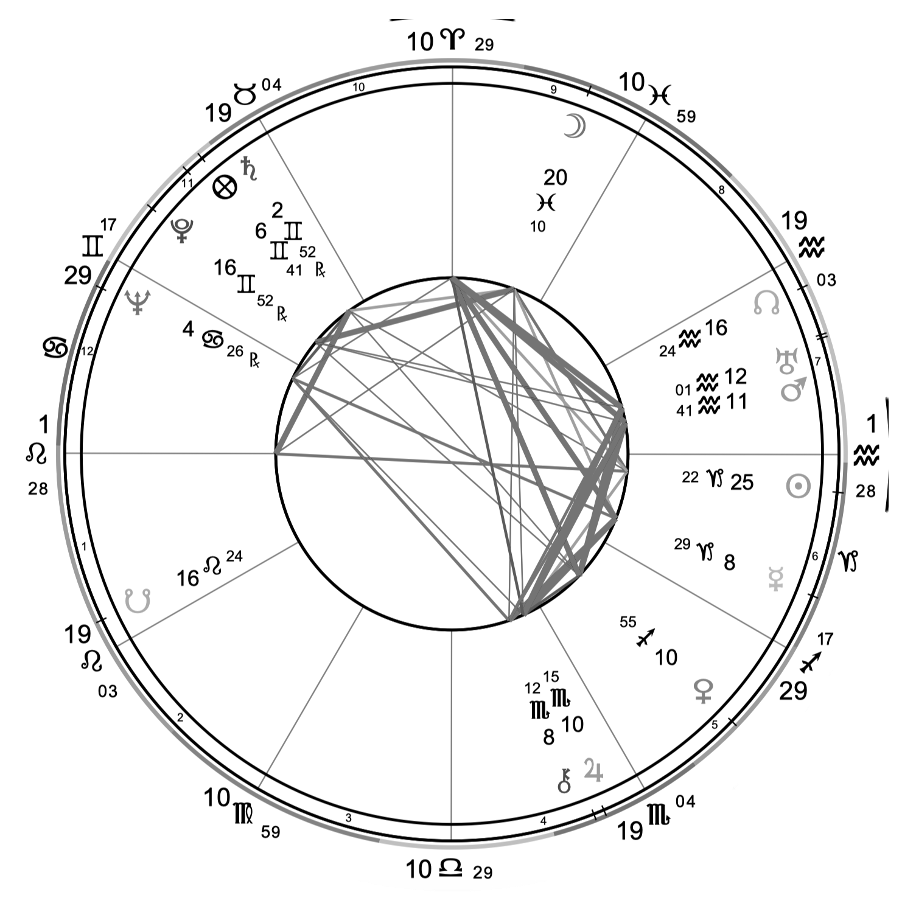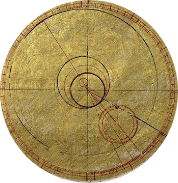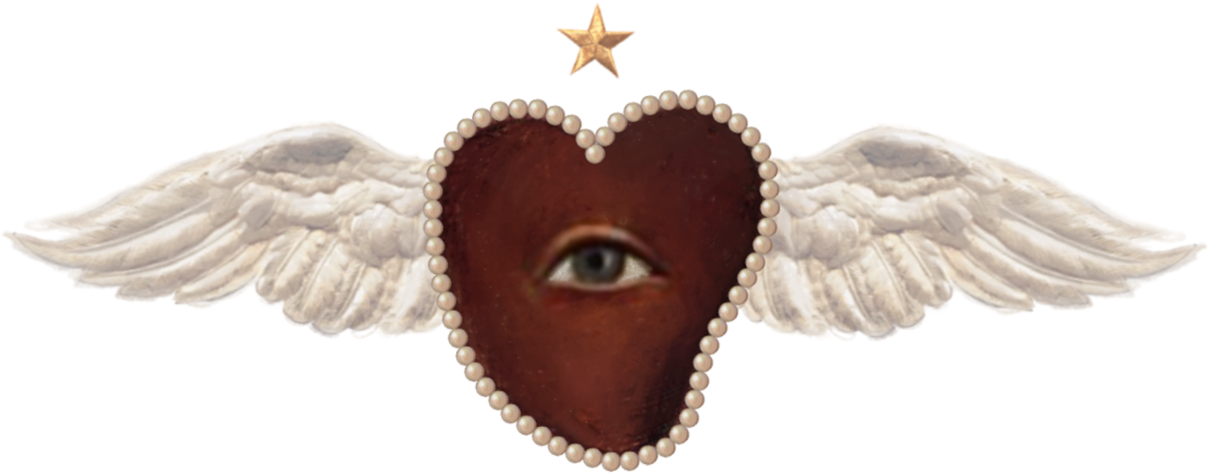“gentle Dauphin, my name is Jeanne, the Maiden. The King of Heaven has sent me to bring you and your kingdom help”
Stellar Wheel

capricorn



Joan of Arc
10 minute read
The tale of the medieval Maiden, the liberator of France, has always been etched in the celestial canvas above us. Veiled in the enigmatic shroud of Celtic prophecies, whispers of a young girl who would rescue France from the clutches of the Hundred Years' War echoed for years before Jeanne's arrival.
This legend, as elusive as the morning mist, finds its roots in the prophecy of the ancient seer Merlin 2, who glimpsed a wondrous maiden emerging from the woods near the border of Lorraine, destined to heal the nations.
True to Merlin's prophecy, the Maiden emerged from the unassuming hamlet of Domremy, nestled in the eastern heart of France.
With Jeanne as our guide, we journey towards the starry realm of Capricorn, the sovereign of the Earthly realm.
Saturn, the patron saint of Capricorn, brings order and structure to everything it touches. It governs the physical and tangible aspects of our lives, including our genetic makeup and the material world around us.
As we bask in Saturn's cosmic rays, we are reminded of the importance of diligent effort and unwavering dedication in turning our dreams into reality 3.
It is well-known that in ancient Roman mythology, Saturn was considered the God of Agriculture and Harvest. According to the mythology, Saturn was known for rewarding those who worked hard and dedicated themselves to their craft.
This belief still holds true in our modern society, as we can draw parallels between Saturn's energy and our own psychological makeup.
Have you ever wondered why some people seem to excel in their chosen fields while others struggle to make progress? Well, the answer lies in the planet Saturn.
In the context of personal growth and development, Saturn is that part of our psychology that is like a strict but loving teacher who demands discipline and structure from their students. There are no shortcuts to success; one must invest considerable effort, dedication, and countless hours of repetition to reap the rewards.
The stellar influence of Capricorn and its ruler, the mighty Saturn, is that of someone who truly honors the material realm, understands the concept of battle, effort, and enlightenment, and knows where all battles should be fought. 4 5
The expression of Capricorn's energy is intriguing, and delving into Jeanne d'Arc's life and actions sheds light on it even further.
As the daughter of a working farmer, Jeanne was characterized by her modest and simple nature and devout religious beliefs. She was known to attend church regularly and visit sacred places where she would pray ardently from her heart.
She worked, sewed, helped in the fields, and did what was needful about the house. She was also more than that; she was a born Capricornus-boss, thorough Daughter of the Soil made flesh who ordered everybody about 6, from her family and later to the king, the archbishop, and the military General Staff.
This apple of the Cosmic Eye was neither a princess nor a beggar-maid but an awe-inspiring technician of the Lord charging into a Heavenly mission with nothing but a sharp tongue and an even sharper sword. She undeniably possessed a divine mandate to conquer 7, a testament to her leadership and courage.

“what no one knew, even her parents, was that Joan from the early age heard voices, they came to her in light using the language of angels”.
Jeanne possessed a distinctive mental makeup characterized by her exceptional amour-propre. Her sense of self-love and self-respect were strongly linked with her psychic centers, which seemed to be turned up full blast and working at their highest capacity 11.
Imbued with this courage, Jeanne presented herself at Dauphin's court, asserting her role as the ambassador and plenipotentiary of God. However, the skeptical Dauphin and his clergy decided to put the seventeen-year-old girl to the test by sending her to war with reinforcements to see what she could accomplish.
Little did they know that Jeanne was a force to be reckoned with. This prophetess was not one to back down from a challenge. With her unwavering faith and determination, the young female warrior with no military experience charged into the Hundred Year War 12.
She proudly displayed a white flag sown with elegant fleur de Lys, symbolizing her noble intentions and chivalrous spirit.
On the flag was an apocalyptic image of Christ 13 holding the world, and on each side of Him were angels Saint Michael and Saint Gabriel, further reinforcing the theme of divine intervention and protection in the face of conflict. Jhesus Maria was written on the flag with gothic-style gold lettering.
Taken together, these powerful images and symbols serve as a testament to the human spirit's resilience and fortitude in times of adversity.
“It was I who carried the aforementioned sign when I charged the enemy. I did so to avoid killing anyone. I have never killed a man.”
“Act, and God will act!”
It is said that her comrades would often see her going off by herself to pray, sometimes she'd even do this on the battlefield. Everything she did was thoroughly 15 and rapidly calculated; she was a woman of policy and not of blind impulse 16
They must have felt that Jeanne’s love of country and people was more than a sentiment; it was a passion. This was true Capricornian patriotism embodied and concentrated 18.
“touch them yourselves; they will get as much good from your touch as from mine.”
The outcome of her pilgrimage would slide into the realms of legend for centuries 23 and ultimately lead to a worldwide ramification in rebirthing a great nation that would go on to take its influential place in European history.
To her enemies, she was a she-devil, witch and a heretic, all-powerful and all-mighty dragon breathing fire. To her own side, she was a miracle, blessed virgin 'sainte avec honneur et noblesse' and a warrior with the eyes that emanate profound wisdom surpassing this earthly realm.
“I came from God. There is nothing more for me to do here! Send me back to God, from Whom I came!”
Buxton, E. M. W 2004 The Story of Joan of Arc, Dover Publications: US.
Twain, M. 1896 Personal Recollections of Joan of Arc, Harper & Brothers: US.
Image References
1. Hall, S. C. 1870 Midsummer Eve/ a fairy tale of love, London England, Open source.
2. Excerpt from the Flemish magazine Regenboog Draft for the woodcut Pan of Jozef Cantré Published in 1918 Ghent University Library
3. Asbjørnsen, Peter Christen, Moe, Jørgen Engebretsen, Dasent, Sir George Webbe, Nielsen, Kay Rasmus, 1922 East of the sun and west of the moon / old tales from the North, Fairy tales Folklore Norway, New York Public Library.
4. Asbjørnsen, Peter Christen, Moe, Jørgen Engebretsen, Dasent, Sir George Webbe, Nielsen, Kay Rasmus, 1922 East of the sun and west of the moon / old tales from the North, Fairy tales Folklore- Norway New York Public Library
Ascendant in Leo, Sun in Capricorn, and Moon in Pisces. Braveheart is touched by the elements of fire, earth, and water, respectively. The inner blending energies of Joan’s Sun and Moon reveal that she was a person of virtue and courage, without the inner conflict in who she was and what she came to do.
Druid oracle priest of the sun-cult who weaved dimensions together.
Goddess Pallas in Pisces in the 9th house indicates that Jeanne’s divine spark of creative intelligence and higher wisdom sprung forth from the realm of religion and higher learning.
She was known for her clear and concise words; before speaking, she would quickly examine and edit her words so that what is said is rational, sensible, and unclouded by emotion (Moon quintile Saturn).
Transformation of the collective and improvement of life on Earth for all mankind (Fortune conjunct Pluto). Goal-oriented approach with a sense of responsibility to the world and a sense of determination to fulfill her destiny (Mars sextile Midheaven).
